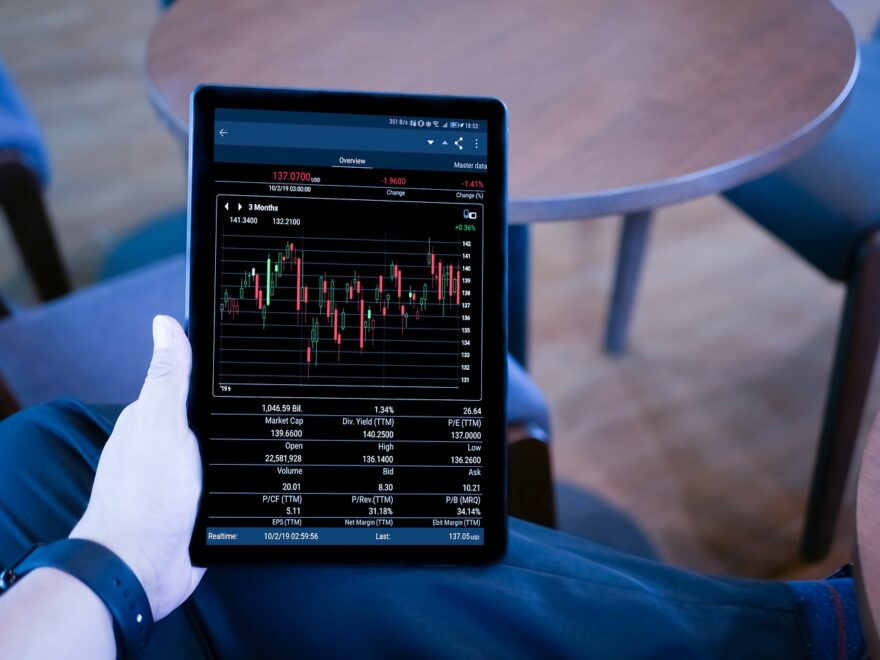Scammers often target traders wannabe in search of online investments, especially those doing it through standard search engines such as Google, Yahoo or Bing.
The promise of high investment returns and incredible gains make their offer seem either appealing or unbelievable. Still, many people fall into their trap.
This is why it is important to recognise scams and understand where you should focus your attention to trade financial assets before starting your online trading journey.
How Online Trading Scams Work
Online trading scams are usually promoted via social media channels such as Facebook, Telegram, Discord and Twitter. Scammers usually promise for high returns and use images and quotes of fake celebrities, rich people who supposedly gain their wealth by using that online trading service or platform, and luxury items to show-off.
After they lure you with such things, they will make you click on ads which link to a website where you will be persuaded to invest your capital. Those investments are usually presented in two ways:
- Through a managed account: the firm will promise you to manage your account, therefore your funds, on your behalf and lure you to do a deposit.
- By using their trading platform: the firm will lure you to open a trading account on their trading platform, or something similar to a trading platform, in order to let you trade in financial assets and lure you to do a deposit.
It is interesting to notice how most scammed traders report to have received some money as a return of their investments by the scammers, in order to give an impression of trading in a legitimate service. This leads people to invest even more money and introduce friends and family members to invest in such activities, until the return eventually stops and the accounts get suspended or the trading platform closes.
The Importance Of Regulation
Once you understand online trading scams, you can check by yourself if an online trading is a fraud or a legitimate service by simply checking their regulation.
As a matter of fact, to be considered legitimate a trading service must be regulated by a proper regulation imposed by a financial authority. Checking their register, which are usually open to everybody on their main websites, is mandatory if you want to avoid scams: only by cross-checking a firm license number with the regulator register will you be sure that you are dealing with a trustworthy online trading service.
Keep also in mind that regulators have one or more areas of influence. The following list shows some of the most important financial regulators across the world.
Area of influence – Europe
- BaFin – Bundesanstalt für Finanzdienstleistungsaufsicht (Germany)
- BCSM – Central Bank of San Marino (San Marino)
- CBR – Central Bank of Russia (Russia)
- CONSOB – Commissione Nazionale per le Società e la Borsa (Italy)
- CYSEC – Cyprus Securities and Exchange Commission (Cyprus & European Union)
- ESMA – European Securities and Markets Authority (European Union)
- FCA – Financial Conduct Authority (United Kingdom)
- FINMA – Swiss Financial Market Supervisory Authority (Switzerland)
- FSMA – Financial Services and Markets Authority (Belgium)
- GFSC – Gibraltar Financial Services Commission (Gibraltar)
Area of influence – The Americas
- BMA – Bermuda Monetary Authority (Bermuda)
- CIMA – Cayman Islands Monetary Authority (Cayman Islands)
- CSA – Canadian Securities Administrators (Canada)
- CVM – Comissão de Valores Mobiliários (Brazil)
- FinCEN – Financial Crimes Enforcement Network (USA)
- IFSC – International Financial Services Commission (Belize)
- IIROC -Investment Industry Regulatory Organization of Canada (Canada)
- SEC – Securities & Exchange Commission (USA)
Area of influence – Asia & Oceania
- ASIC – Australian Securities and Investments Commission (Australia)
- FSC – Financial Services Commission (South Korea)
- HKMA – Hong Kong Monetary Authority (Hong Kong)
- ISA – Israel Securities Authority (Israel)
- JFSA – Financial Services Agency (Japan)
- SEBI – Securities and Exchange Board of India (India)
- SFC – Hong Kong Securities and Futures Commission (Hong Kong)
Remember that choosing a non-regulated broker, trading platform or firm is a sure path to a scam, and you should avoid them at all costs.

